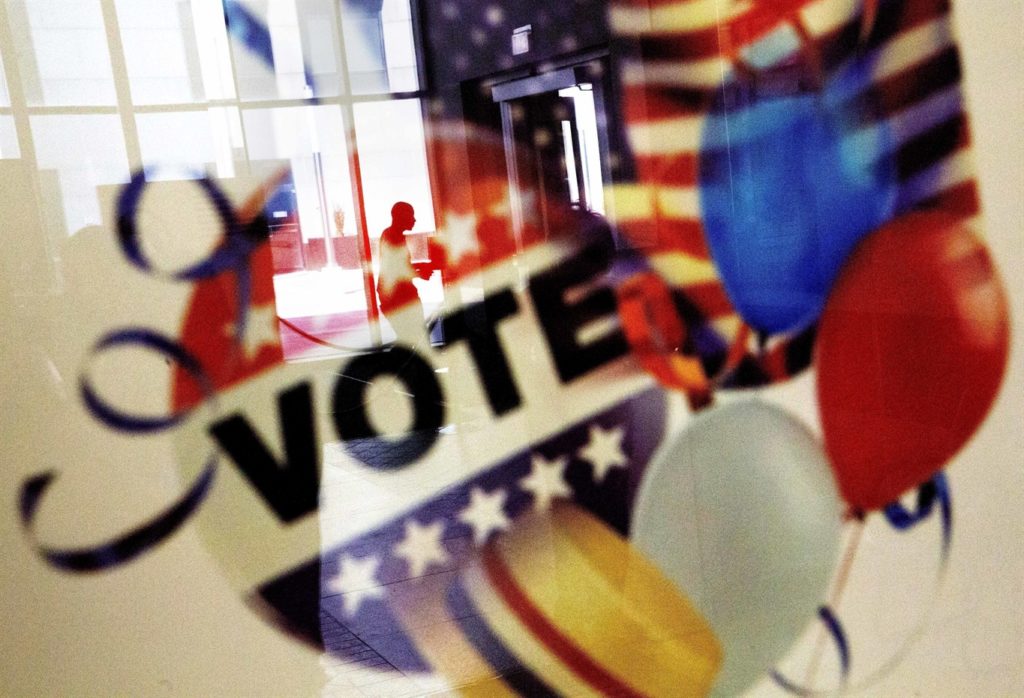Alabama’s long history with Senate special elections

With Alabamians about to head to the polls Tuesday, Sabato’s Crystal Ball published a look back over the Yellowhammer State’s long and fascinating history with Senate special primary elections. Since the ratification of the 17th Amendment, which requires U.S. Senators to be directly elected, Alabama has had five special elections for Senate. The first of those five, held in 1914, was actually “the first to test the authority of a Governor to fill a vacancy since the direct election amendment to the Constitution was adopted” according to a Los Angeles Times article published at the time. The amendment, in part, states “that the legislature of any state may empower the executive thereof to make temporary appointments until the people fill the vacancies by election as the legislature may direct.” But the Alabama Legislature, which didn’t meet annually during that era, wasn’t scheduled to be back in session until 1915. The second race, in 1920, brought about the preferential primary voting system, which requires candidates to win a majority of the vote to secure their party’s nomination. If that doesn’t happen in the primary election, the top two finishers duke it out in a runoff election. The same system is still in place today, and if recent polls are anything to go by, the primary runoff will have to be used on the GOP side again this year. The lead up to the 1938 election saw Alabama with its first female senator, Dixie Bibb Graves, who was appointed by her husband, then-Gov. Bibb Graves, so he could avoid showing any favoritism among candidates in his party. Once the special primary election was decided, Graves rescinded his wife’s appointment and put the winner, J. Lister Hill, into the seat before holding the general election. In the fourth special election saw George Sparkman win a seat in the Senate and avoid a primary runoff with a narrow 50.1 percent victory. He went on to hold the seat for 32 years and is to this day the state’s longest-serving senator. He could have never made it to office, though, if it were not for his two primary opponents splitting the conservative vote down the middle in a contentious campaign. Alabama’s most recent Senate special election was held in 1978, and it is the most similar to the 2017 edition. After the death of Sen. Jim Allen his wife, Maryon Pittman Allen, was appointed to the seat. She was considered a favorite early on in the race but fell sharply in the polls after bad-mouthing then-Gov. George Wallace in a Washington Post interview. The move marked her as undignified and, more importantly, not conservative, though she came in second place in the primary and ultimately lost the runoff by 15 points.
Incumbents have better-than-average year in 2016, says Sabato’s Crystal Ball

It was a good year to run as an incumbent according to an article published Thursday in Sabato’s Crystal Ball. “Looking over the down-ballot outcome, there’s one inescapable conclusion in a year that was defined by a political outsider, Donald Trump, winning the presidency: It was still a really good year to run as an incumbent in 2016, all things considered,” the report states. Since the end of World War II, about 93 percent of incumbent representatives, 80 percent of senators and 73 percent of governors won re-election, but the 2016 cycle beat those averages handily. Overall, 27 of 29 senators, four out of five governors and 380 out of 393 representatives running for re-election won another term on Election Day. More incumbents could have won re-election, too, were it not for court-ordered redistricting in Florida, North Carolina and Virginia that put a handful of incumbents in each state at a disadvantage. Also, outgoing North Carolina Republican Gov. Pat McRory and exiting New Hampshire Republican Sen. Kelly Ayotte each lost their re-election bids by slim margins. There will still be plenty of new blood in Washington D.C. and state capitols next year even though incumbents enjoyed a high success rate. Seven new governors will take office next year, and about an eighth of the House will be new when the next Congress convenes. The Senate will also welcome seven new members, and will likely add an eighth after Alabama Republican Sen. Jeff Sessions’ confirmation hearings for the Attorney General job. “However, despite the fact that there is some churn in Congress and in the statehouses, the reality is that if an incumbent is on the ballot, he or she typically has good odds of winning,” Kyle Kondik and Geoffrey Skelley wrote. “That’s been true for much of recent American history, and it was still true in 2016.”

